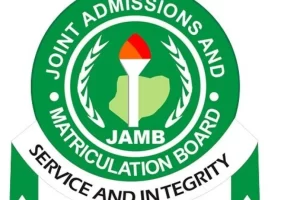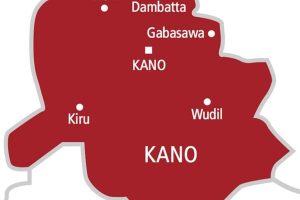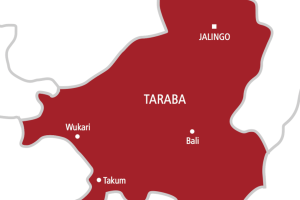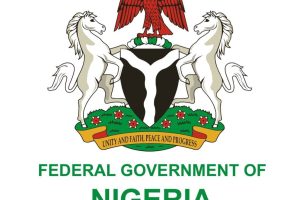BRIEFINGNOTES
With the refusal of the members of the National Assembly to expunge the controversial section of the Electoral Act as requested by President Muhammadu Buhari and their decision to challenge the court’s judgment that ordered the deletion of the section, Ejiofor Alike writes that the federal lawmakers have reneged on the promise made by their leadership to accede to every good request made by the president
Following the frosty relationship between the presidency and the leadership of the eighth National Assembly led by a former President of the Senate, Dr. Bukola Saraki, and a former Speaker of the House of Representatives, Hon. Yakubu Dogara, the presidency had shown interest in the emergence of the leadership of the ninth National Assembly. To ensure the emergence of a leadership that would be loyal to him, President Muhammadu Buhari, as the leader of the All Progressives Congress (APC), was said to have anointed Dr. Ahmad Lawan and Hon. Femi Gbajabiamila to lead the ninth National Assembly. Lawan and Gbajabiamila had in June 2019 emerged as the President of the Senate and the Speaker of House of Representatives, respectively, with Buhari’s support. The Senator representing Yobe North had polled 79 votes to defeat the Senator representing Borno-South senatorial district, Ali Ndume, who polled less than 28 votes. On his part, Gbajabiamila had also polled 281 votes to defeat Hon. Umar Bago, who scored 76 votes. In return for the president’s support, the two leaders had promised that the federal lawmakers would work collaboratively with the executive.
Unlike the Saraki-led National Assembly, which rejected some of the president’s request, Lawan had on several occasions promised that the ninth National Assembly would approve any request made by President Buhari because it would be for the good of the country. He had on one occasion declared that any request President Buhari sent to the Senate would make Nigeria better.
For instance, while receiving the Chairman of the Presidential Advisory Committee Against Corruption (PACAC), Prof. Itse Sagay in his office in Abuja, Lawan had declared that: “I want to assure you that any request that comes from Mr. President is a request that will make Nigeria a better place in terms of appointments or legislation and the Senate will act expeditiously to ensure that we play our part in the confirmation or passing of legislation appropriately.”
The high level of collaboration between the National Assembly and the executive arm eventually earned the Lawan-led federal lawmakers a rubber-stamp status. The legislature has been accused of backing the president is his borrowing spree.
Despite the criticisms that followed Buhari’s request to the Senate for the approval of a $29.96 billion loan, the National Assembly eventually granted his request.
In November 2018, the Saraki-led Eighth Senate had unanimously thrown out the president’s request for the loan, insisting that the letter conveying it was not accompanied by a borrowing plan.
However, with the recent turn of events, this promised collaboration between the two arms of government appears to be shaky as the ambitions of the lawmakers ahead of the 2023 general election may have become their top priority. The latest test of their loyalty came recently when President Buhari signed the Electoral Act with the belief that the lawmakers would accede to his request as usual and delete a portion of it considered unconstitutional. Buhari while signing the amended bill into law in February 2022, had urged the lawmakers to expunge Section 84(12) of the Act, in line with the agreement he had with their leadership.
The clause reads: “No political appointee at any level shall be a voting delegate or be voted for at the convention or congress of any political party for the purpose of the nomination of candidates for any election.” However, the Federal High Court in Abuja, later barred President Buhari, the Attorney-General of the Federation (AGF) and the Senate President from tampering with the newly amended Act.
The judge, Justice Inyang Ekwo, in a ruling on an ex-parte application by the opposition Peoples Democratic Party (PDP), said the Electoral Act having become a valid law could not be altered without following the due process of law.
Ekwo agreed with the PDP’s lawyer, Ogwu Onoja, a Senior Advocate of Nigeria (SAN), that the proper place to challenge the validity of any existing law is a court of competent jurisdiction.
Before the court judgment, there were feelers that the National Assembly was already plotting to renege on their agreement with the president. But reacting to the court order, Lawan had vowed that the court ruling would not stop the legislature from amending the bill again.
“I find it very necessary to talk at this point because with the Constitution of the Federal Republic of Nigeria, our governance system is based on the presidential system of government where there is a clear cut separation of powers and exercise of powers.
“The judiciary under no circumstance can stop the legislature, the National Assembly from performing its legislative duties. We know what our due processes are. Just like we won’t venture in what the judiciary does, the judiciary should understand that we have our processes.
“I believe the members of the National Assembly know their work, know their onions and would do what is right. This is due process, we are not doing anything outside the law. It is within our exclusive right to consider whatever request we receive from Nigerians either from the Executive or private member bill,” he reportedly said during plenary,” Lawan said.
But when the president’s request came up at the plenary, the Senate bluntly rejected it, despite Lawan’s promise. The bill had scaled the first reading, but was rejected after Senator Yahaya Abdullahi made the lead debate for its second reading.
But a fast one was played on the federal lawmakers when a Federal High Court in Umuahia, the Abia State capital, presided by Justice Evelyn Anyadike declared illegal the disputed section of the Act, and directed the federal government to delete it. The Attorney-General of the Federation and Minister of Justice, Abubakar Malami, promptly said his office would soon comply with the court order.
But strong indications that they were not sincere in their promise to amend the Act as requested by Buhari emerged when the Senate and the House of Representatives separately condemned the court order and vowed to take immediate action on it.
The Senate and the House of Representatives had separately reached a decision to appeal the judgment at their plenary on Wednesday. The House had also resolved to report Justice Anyadike to the National Judicial Council (NJC) for empowering Malami to delete the section from the Act.
Is the National Assembly daring Buhari because his tenure is coming to an end? Is their rejection of the president’s request a sign of greater challenges they will give the president in the coming months? While Nigerians wait for the events of the next few months to provide answers to these questions, the rejection of the president’s request was against the collaboration between these two arms of government.


















Add Comment